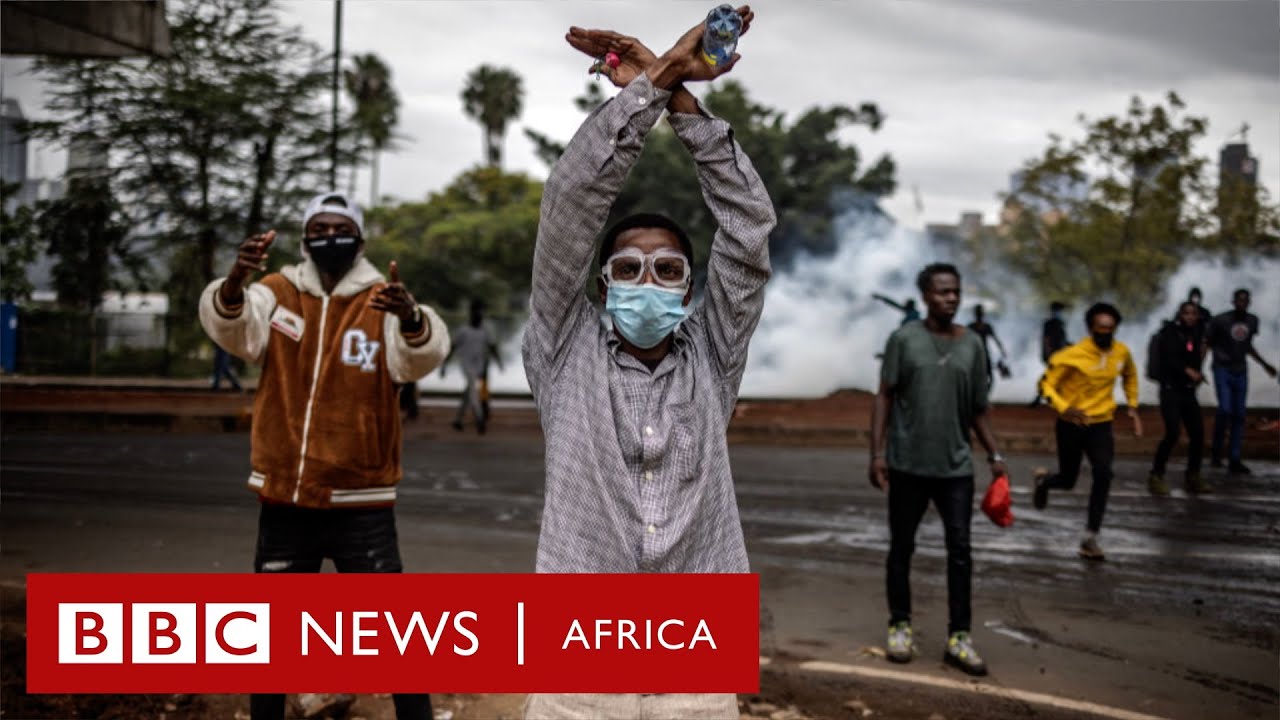News
#RejectFinanceBill2024: This is Why Kenyan Youths Are Protesting

Since the 19th of June, thousands of Kenyan youths have taken to major streets across the country to protest the tax hikes in a proposed finance bill by the government of Kenya in parliament. According to the protesters, the bill includes new taxes and fees on essential items and services like bread, sanitary pads, and mobile phones. They argue that the bill’s tax hikes and levies would exacerbate the country’s already dire cost-of-living crisis.
Dubbed #OccupyParliament or #RejectFinanceBill2024, the protests began in Nairobi, the capital city, before spreading to other parts of the country including the Indian Ocean city of Mombasa, the Rift Valley city of Nakuru and the opposition bastion of Kisumu. The protests aimed at putting pressure on lawmakers and members of the Kenyan parliament to reject the finance bill.
This is not the first time Kenyans have taken a stand against tax hikes. Last year, protests erupted against unpopular hikes on petroleum products, leading to increased transportation and staple costs.
However, this year’s movement is different due to its youth leadership. The protests are majorly spearheaded by Gen Zs – the generation born during the late 1990s and early 2000s. From what began as an outcry on social media platforms like TikTok and X (formerly Twitter), youths poured onto the streets with placards carrying messages such as “Do not force the taxes on us” to demand a change in the finance bill.
“I think this is going to down in Kenyan history as a time when young people really showed up for a protest,” a protester tells BBC World Service.
By Thursday afternoon, as the protests continued to gain momentum online and offline, the government announced it would scrap many of the bill’s most contentious provisions, including taxes on bread purchases and car ownership.
“The finance bill has been amended to remove the proposed 16% levy on bread, transportation of sugar, financial services, foreign exchange transactions, as well as the 2.5% motor vehicle tax,” the presidency wrote in a statement.
Below are some major changes proposed in the Finance Bill:
- Introduction of an Eco Levy on all imported products that harm the environment such as sanitary towels, diapers, motorcycles, tyres, plastic packaging, electronic devices, audio-visual recording equipment, radio equipment, and electronic equipment.
- Change of tax status of ordinary bread, transportation of sugarcane from farms to milling factories, locally assembled mobile phones, electric bikes, solar and lithium-ion batteries, and electric buses from tax-exempt to standard which would introduce a 16% VAT on the items.
- Introduction of a 2.5% Motor Vehicle Tax with a minimum of KES 5,000 and a maximum of KES 100,000. This was later amended to remove the ceiling.
- Withholding tax on payments made for goods supplied to public entities at 3% for residents and 5% for non-residents.
- Increase of Road Maintenance Levy from KES 18 to KES 25 per litre of fuel, which will raise the price of fuel even further.
- Change of tax status for fertilizers, pesticides and fungicides from zero-rated to exempt means that the tax on these items is still zero but manufacturers can no longer claim VAT on these items.
- Introduction of a 25% excise duty on vegetable and seed oils and 5% duty or KES 27,000/tonne on coal (whichever is higher).
- Increase of excise duty to 20% for financial services transactions, telephone and internet services, lottery, betting, gaming, and advertisements on the internet and social media.
Some of the arguments against the proposed finance bill include;
- The introduction of the Eco Levy on finished products would unfairly affect access to sanitary products in a country where over 65% of girls and women experience period poverty and cannot access menstrual hygiene products.
- The introduction of a tax on necessities like bread, diapers, sanitary towels and cooking oil is a cash grab and punitive to the common Mwananchi.
- A motor-vehicle tax and higher fuel prices resulting from the added road maintenance levy would adversely affect the transport sector and increase the cost of living for most Kenyans due to increased transportation and fuel costs.
- Changing the tax status of agricultural implements will increase the cost of food production in Kenya and consequently the cost of food prices.
- Taxes on electric bikes and buses, batteries and solar equipment contradict the Green Economy Agenda currently being pushed by the government through other proposed taxes like the Eco Levy.
Watch this BBC report below:




















